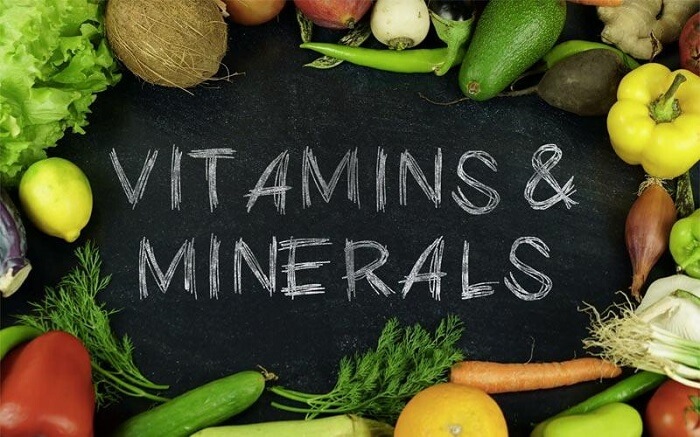What are vitamins and minerals?
Vitamins and minerals are essential nutrients that help keep your body functioning properly. They play a role in everything from immune function and bone health to energy production and brain function. The USDA says that consuming foods rich in vitamin C helps strengthen the immune system. Foods that are high in vitamin C include mangoes, strawberries, broccoli, and citrus fruits.

The USDA (United States Department of Agriculture) recommends consuming 2 cups of fruits and vegetables daily, which contain at least 90 percent of the recommended daily value of vitamin C. While you can get most of the vitamins and minerals you need from a well-balanced diet, some people may need to take supplements to ensure they’re getting enough of these important nutrients.
The difference between vitamins and minerals
They both come from plants, but vitamins are chemicals that your body needs but cannot make on its own. Vitamins are involved in many body processes, including growth and repair, and they help cells make energy from food. Vitamins and minerals are in many foods and can also be bought in supplements.
What do vitamins and minerals do in the body?
Vitamins and minerals are essential nutrients that the body needs to function properly. They play important roles in many different processes in the body, including metabolism, cell growth and repair, and nerve and muscle function. There are a number of vitamins that can help you to grow taller. Vitamin A is essential for the growth and development of bones and tissues and can be found in foods such as carrots, sweet potatoes, and spinach.
In minerals, electrolytes are that carry an electrical charge. The electrolytes are sodium, Iodine, Zinc, magnesium, Potassium, and iron. They are necessary for many biochemical reactions, and they play a role in cell function and metabolism. Vitamin D is also important for the absorption of these minerals. Vitamin D overdose is an excess of vitamin D in the body. Too much vitamin D may cause side effects. The symptoms usually go away after the overdose is stopped.
What is the best way to get enough vitamins and minerals?
The best way to get enough vitamins and minerals is to eat a balanced diet. Vitamins and minerals are found naturally in many foods. Sometimes, people choose to supplement their diets with vitamins and minerals. Supplements, like vitamins, do not replace needed nutrients. Calcium is also essential for many bodily functions, including muscle contraction, nerve function, and blood clotting. This mineral also helps to maintain strong bones and teeth. Calcium is found in many foods, including dairy products, leafy green vegetables, and calcium-fortified foods.
Which foods are a good source of vitamins and minerals?
Good sources of vitamins and minerals include fruits, vegetables, whole grains, low-fat dairy products, and lean protein. Fruits and vegetables contain dietary fiber, vitamins such as Vitamin A, Vitamin D, Vitamin E, minerals, and antioxidants. Whole grains or whole-wheat bread add fiber, B vitamins, magnesium, and iron to the diet. Lean protein sources, such as lean meats, poultry, fish, and eggs, as well as beans, provide protein, B vitamins, and iron. One more source is Flavonoids. Flavonoid is a type of antioxidant found in plant foods. They are found in fruits, vegetables, tea, red wine, cocoa, nuts, and seeds. Research indicates that very high levels of flavonoids are linked to a reduced risk of cancer. A magnesium-rich diet should consist of foods rich in magnesium. People who are following a diet rich in magnesium, and eating a diet rich in magnesium-rich foods, can help control high blood pressure.
Do I need to take a vitamin or mineral supplement?
A multivitamin and mineral supplement may be taken to be certain that you have adequate amounts of the nutrients you need. If a person eats a healthy, balanced diet, he most likely does not have to take a multivitamin supplement. Your health care provider can recommend specific supplements you may need based on your age, gender, and medical history.
More Posts: Himalayan salt – Properties, benefits, and differences with common salt
7 food sources with hidden salt
Foods Rich in Calcium – Benefits, Function, and Symptoms of Its Lack
Hypervitaminosis – Symptoms and consequences of an excess of vitamins
